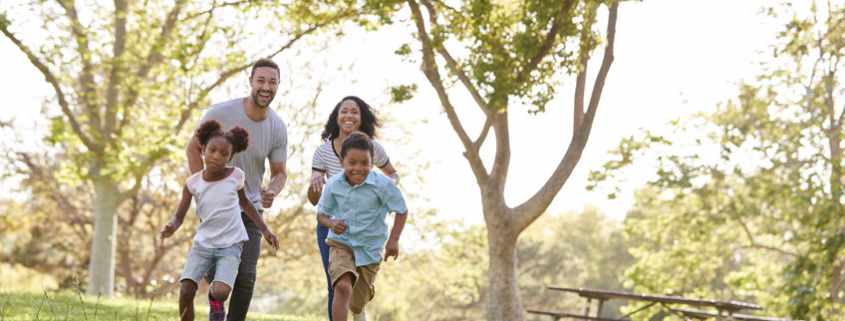Physical Activity for Every Age
By Daniel Smoots, MD Family Medicine
Physical activity and exercise can seem like one more item to add to the to-do list, but there are good reasons why striving to get daily movement and exercise on to your family’s schedule is so important. There are many benefits to look forward to, from better physical and mental health, to quality family bonding time. Developing good exercise habits with your children provides an opportunity for encouragement and positive feedback which builds self-esteem and confidence, and helps motivate and maintain good habits as they grow.
Why should we exercise?
- Exercise is shown to improve physical health: controls weight, strengthens bones and muscles, gives you more energy, and leads to more restful sleep
- Activity and exercise are good for mental health: reduces anxiety, depression, and leads to higher self-esteem, and improved mood
How much exercise should a child get (CDC recommendations)?
- Children of different ages need different amounts of exercise, according to the CDC
- 60 minutes of moderate-intensity activity each day (ex: fast walking, playing)
- Vigorous-intensity activities 3 times a week (ex: running, playing fast-moving sport)
- Muscle and bone strengthening activities 3 times a week (ex: climbing, push-ups, jumping)
- Toddlers should engage in active play throughout the day
How much exercise should an adult get?
- 150 minutes (or 30 minutes 5 days a week) moderate-intensity aerobics each week
- Muscle and bone strengthening 2 times a week (resistance or weight training)
What are good ways to exercise together as a family?
- Take a family walk, go to the park, hike, bike ride or rollerblade, play a game (ex: tag, hide and seek), try yoga, go swimming
- Play sports. Soccer, basketball, tennis, racquetball can be played at varying levels depending on your family’s ages and skill levels
How to make exercise more engaging for children?
- Make an activity chart to pick from or check off, spin a wheel to choose the activity, have them create and lead a new game, or build an obstacle course (add some competition for timing for who gets through the fastest)
- Have them count the steps. Take the stairs, park further away in parking lots
- Have a dance party (helps get the “wiggles” out, and also a good aerobic activity when done for at least 10 minutes to upbeat music)
Make it a time that the family looks forward to by keeping it simple and fun, trying new things, and learning new skills. Find a way to get moving together as a family and feel and see the benefits!










Trackbacks & Pingbacks
[…] health education advice for all life stages is fundamental to fostering long-term well-being. Each stage of life presents unique health […]
Comments are closed.